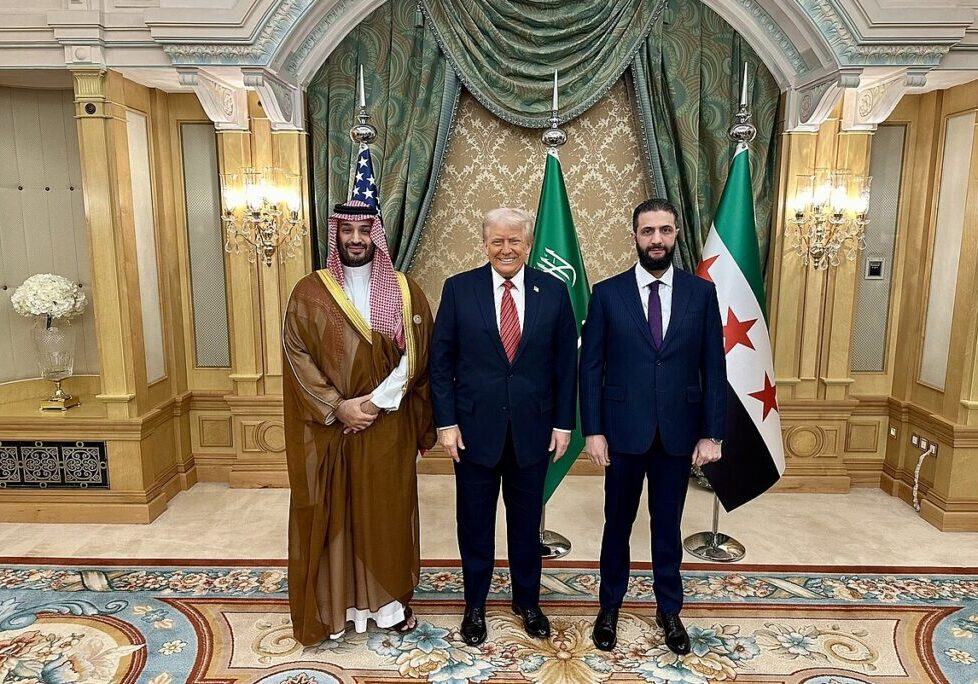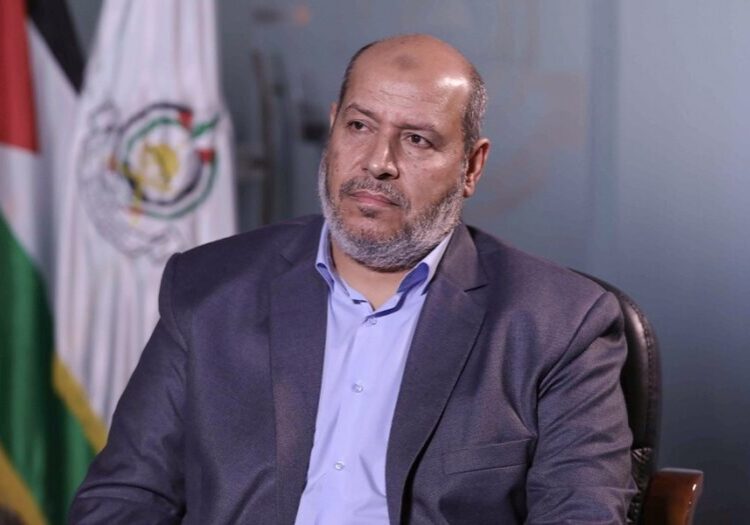Australia/Israel Review
A Middle East Without American Influence?
Mar 26, 2010 | Lee Smith
By Lee Smith
In mid-March, one of Syria’s government news organs riffed on the title of my book The Strong Horse; Power, Politics, and the Clash of Arab Civilisations. “The American president,” al-Tharwa wrote, “was betting on the sick horse.” Instead of siding with Syria’s Hamas allies, Obama was backing the Palestinian Authority and its leader, Fatah’s Mahmoud Abbas. From Damascus’ perspective, the description also applies to the United States’ other Arab allies, like Saudi Arabia and the Gulf sheikhdoms, as well as to Egypt and Jordan. These states are ready to be put out to pasture, while it is Iran’s “axis of resistance”, including Hezbollah and Hamas, as well as Syria itself, that represents the rising power.
OK, maybe the regime in Damascus hasn’t actually read my book. I lifted the title from Osama bin Laden, anyway. “When people see a strong horse and a weak horse,” said bin Laden, “by nature, they will like the strong horse.” But the Syrian appraisal confirms my thesis – in the Middle East, political power is the prerogative of those who take it and maintain it by both the appearance and application of force. In this instance, unfortunately, what’s good for my book is very bad for US interests and allies.
As it turns out, the Syrians have a point. Saudi Arabia has the world’s largest known oil reserves, and Egypt is the most populous Arab state, but they are no longer regional powerhouses, at least in the way the Arabic-speaking Middle East has typically registered power over the last 60-plus years – that is, as willingness to fight Israel. Cairo and Amman have peace treaties with Israel, the Palestinian Authority is involved in an on-again-off-again peace process, while Riyadh has opted to remain on the sidelines. This collective weakness is just the way that Washington ordained it four decades ago.
In the middle of the 1973 Arab-Israeli war, Henry Kissinger airlifted arms shipments to Israel in order to guarantee an Israeli victory that for a time had seemed uncertain. Kissinger’s strategic intention was to show the Arabs that as long as Washington stood behind Israel, there was no way they could ever defeat the Jewish state. If they wanted concessions from Israel, they would have to petition the Americans for it, a prerogative that made Washington not merely a great power but a power broker. The United States made itself the regional strong horse.
Of course, with those arms shipments, Kissinger meant to drive home another lesson as well, this one to Israel – in effect, that Washington held the power of life and death over the Jewish state and that Israeli leaders had best keep in line. This arrangement – Israeli strength and Arab weakness – secured what some have called the Pax Americana of the Middle East. After Egyptian President Anwar Sadat jumped from the Soviet side to the American one after the 1973 war, US regional hegemony was never again seriously contested – until now.
The new catch phrase in the Middle East is strategic realignment. Broadly speaking, this means that the balance of power is shifting from the US-backed regional order to the axis of resistance. Some commentators, like Robert Malley, have argued alongside the Syrians that the Obama Administration should drop its old allies – the sick horse – for new friends among the axis of resistance. From a certain perspective, it appears that the White House has done just that, albeit unintentionally.
When the Obama Administration promised to engage the adversaries that the Bush White House had isolated, US allies followed the strong horse’s lead and also changed course. Most notably, the Saudis patched things up with the Syrians after five years of intra-Arab discord. Riyadh pushed its Lebanese allies to reconcile with Damascus, and with Beirut’s pro-democracy and pro-United States March 14 movement now all but dead, Washington no longer has a Lebanese ally. When President Barack Obama indicated that the most important thing concerning Iraq was to withdraw US forces, the Syrians and Saudis found a shared interest in attacking Prime Minister Nuri al-Maliki. Even as Maliki, his Iraqi security officials, and Gen. Raymond Odierno, the top US commander in Iraq, explained that the Syrians were behind a series of mega-terror attacks in Baghdad, the White House hushed them up for fear that identifying Syria as responsible for the attacks would jeopardise its efforts to engage Damascus. It is lost on no one in the region that Washington left two allies out on their own.
Some US commentators have praised the Obama Administration’s recent condemnation of Israel for announcing, during Vice President Joe Biden’s visit, that it intended to build 1,600 apartment units in east Jerusalem. The White House’s response, they argue, sends a strong message that Washington won’t be bullied. In the Middle East, however, there is nothing that reeks so much of weakness as beating up on an ally in public.
Moreover, this tongue-lashing comes shortly after the White House swallowed the open taunts of its adversaries. At a recent Damascus banquet featuring Iranian President Mahmoud Ahmadinejad, Hezbollah’s Hassan Nasrallah, and Hamas’ Khaled Meshal, Syrian President Bashar Assad openly mocked Secretary Hillary Clinton. He joked that he had misunderstood her demands that Syria distance itself from Iran, so instead, said Assad, he was waiving visa requirements for visitors from the Islamic Republic of Iran.
Of course, Washington shaming Israel will please the Arabs – even US allies like Riyadh, Saudi Arabia, and Cairo, Egypt, that cheered on Jerusalem when it took on Iran’s assets Hezbollah and Hamas. Remember, the Arabs have been compelled by the American strong horse to swallow their pride for decades. But given that Arabs do not air their own dirty laundry for fear it will make them look weak, the Obama Administration’s public humiliation of an ally will earn the US only contempt.
But here’s the most important thing: Even if you discount the centrality of shame and honour as operative principles in the Middle East, the Obama Administration has blundered by jeopardising not Israel’s stature but the US’s own regional interests and the Pax Americana that has been built over the last 35 years. The US position in the region depends on every actor there knowing that we back Israel to the hilt and that they are dependent on us. Sure, there are plenty of times we will not see eye-to-eye on things – differences that should be resolved in quiet consultations – but should any real distance open up between Washington and Jerusalem, that will send a message that the US-backed order of the region is ready to be tested. And that’s exactly what the axis of resistance is seeing right now.
The recent US-Israeli contretemps is not about progress on the Palestinian-Israeli peace process. It is about Iran. The Obama Administration has all but announced that it has resigned itself to an Iranian nuclear program and that it is moving toward a policy of containment and deterrence. We will extend a nuclear umbrella to protect our Arab allies in the Gulf, says Secretary of State Clinton, and we will continue to give Israel security guarantees. In rattling Prime Minister Binyamin Netanyahu’s cage, the Obama Administration was warning Israel not even to contemplate an attack on Iran.
Of course, really effective deterrence would require us to make sure that our Israeli allies were perceived as highly volatile and unpredictable actors who might just take matters into their own hands and bomb Iran’s nuclear sites. That scenario would have a better chance of cornering Iran and its allies, compelling them to seek relief from us, the rational senior partner. Instead, the US just pulled off the strategic equivalent of beating up its own pit bull on a street corner to show the neighbourhood tough guys that we mean business.
President Obama is not intentionally trying to sacrifice America’s position in the energy-rich and strategically vital Middle East, but his policies may well lead to that. Strategic realignment doesn’t just mean that Washington gets to trade in one set of allies for another. It means that the American order of the region will be superseded by a new order in which we will play a secondary role at best. More likely, as Ahmadinejad and Assad say, it will mean a Middle East without American influence.
Lee Smith is a visiting fellow at the Hudson Institute in Washington, D.C., and author of The Strong Horse: Power, Politics, and the Clash of Arab Civilisations. © Slate.com, reprinted by permission, all rights reserved.
Tags: Middle East






